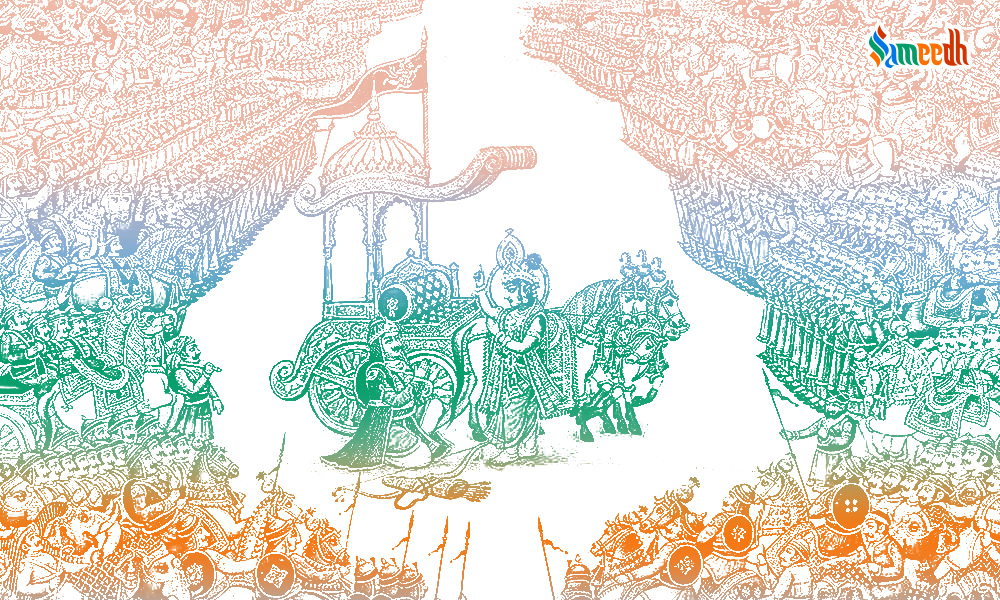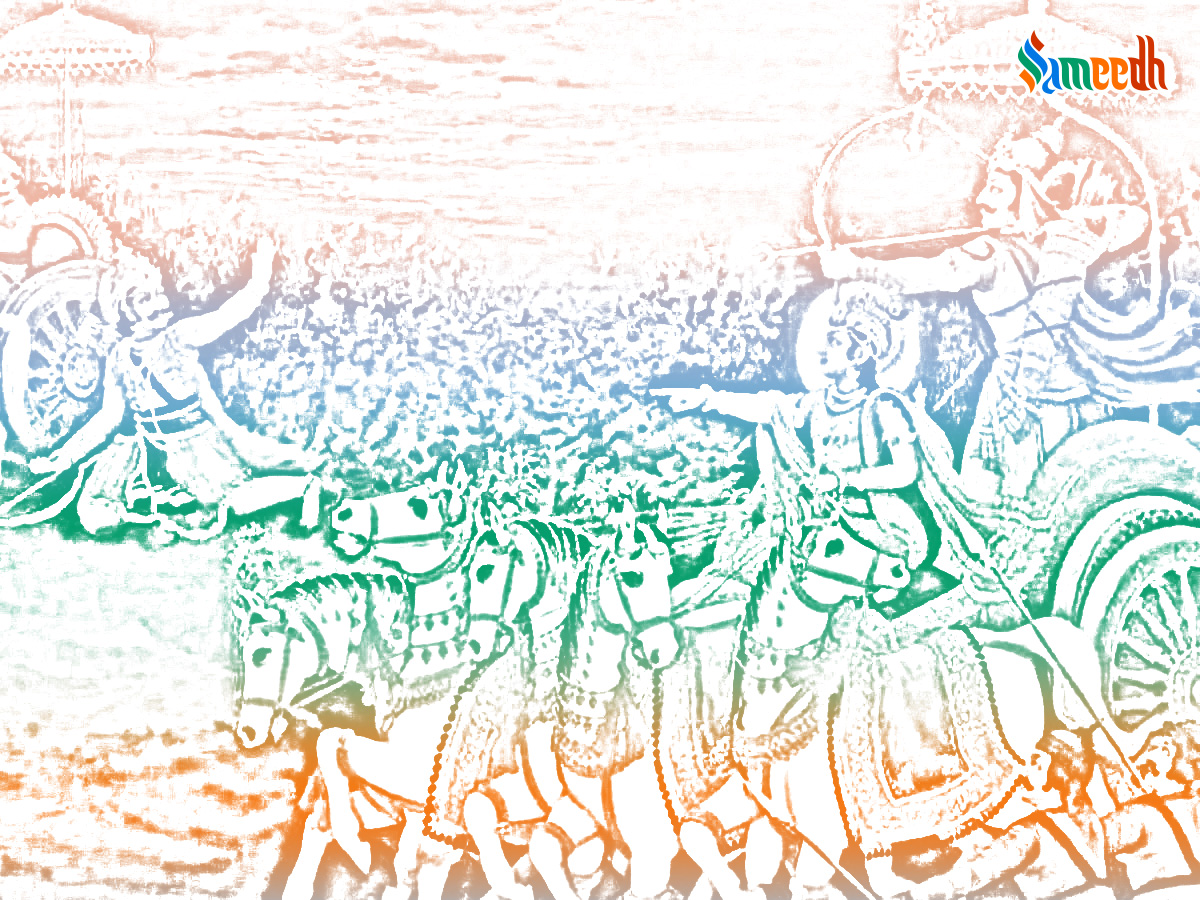The Mahabharat is one of the two major Sanskrit epics of ancient India, the other being the Ramayan. It is an epic narrative of the Kurukshetra War and the fates of the Kaurav and the Pandav princes. The Mahabharat is traditionally attributed to the sage Vyas, who is also a central character in the epic.

The Mahabharat is not just a war story; it encompasses a vast range of narratives, teachings, and philosophical discourses. It consists of around 100,000 verses, making it one of the longest epic poems in the world.
Understanding The Epic Tale of Mahabharat
Mahabharat is an Indian epic, said to be written by the great Rishi Ved Vyas. The events date back to the 4th Century BCE, or even earlier than that. With over 100,000 shlokas, or couplets in it, Mahabharat is said to be a longer epic than Iliad and Odyssey combined! And its philosophical significance is as great, if not greater, than its historic symbolism. Following the stories of two dynasties over a period of generations, The Kauravs and The Pandavs, Mahabharat is a piece of history that recounts the story of good over evil like many others before and after it. But what makes it stand out is how it depicts human nature, choices, and weaknesses. Woven with countless other stories and characters into it, it is a tale that imparts wisdom and lessons through the use of symbolism and metaphors.
Mahabharat also led to the narration of Bhagavad Gita, one of the greatest Hindu philosophical texts and scripture there is, not only in mythology but also in the world of literature. It is an extremely layered text that, when deconstructed, aims to answer one basic question of life: how should one live it? It was narrated by none other than Krushna, who was the eighth reincarnation of Lord Vishnu. Krushna is the biggest metaphor of the epic, and understanding him is said to be equivalent to achieving nirvana.
The Pretext
It all began when Dhritarashtra, the rightful heir was declined the kingdom of Hastinapur (present day Uttar Pradesh) because he was physically impaired, i.e., blind. His younger brother, Pandu, in turn, took the throne, and the kingdom bloomed under his rule. But when he was cursed by a king to live in the forest, he named his older brother the de facto king. It was during this period that Dhritarashtr had a hundred kids, and Pandu had five. After Pandu’s death, Yudhisthir, eldest amongst all the kids, became the rightful heir. This did not sit well with Duryodhan, the oldest son of Dhritarashtr, who on several occasions tried to usurp the Pandavs, and even tried to kill Bheem, the second eldest son of Pandu.
Even after division of lands after both the princes had come of age, Duryodhan could not see the prosperity of the Pandavs. He invited them to a game of dice, where Yudhisthir lost his kingdom, Princess Panchali, who was the wife of the Pandavs, and even himself to the Kauravs. Following a 13-year exile, 1 year of which was incognito, the Pandavs decided to win back their kingdom. When diplomacy didn’t work, they waged a war. With Lord Krushna as the charioteer of the third child of Pandu, Arjun, the battle at Kurukshetra lasted for 18 days. Many people, including all the children of Princess Panchali, died in the battle. The loss was great, but the lesson was greater: You sow what you reap. Mahabharat preached the ideology that the strength of evil doesn’t matter. As long as you have truth by your side and do your duty to your God, you are bound to win. Just like a hundred Kauravs couldn’t defeat five Pandu’s, simply because they were true to themselves, and to the people around them.

Mahabharat was way ahead of its time, with a “magical palace”, or the enchanted palace of the Pandu’s called Indraprasth, or advanced nuclear weaponry used in the war of Kurukshetra. There was also the fact that Bheem was brought back to life after being poisoned using snake venom. This proves the level of wisdom that people during that time possessed was extremely high, but it was their greed and arrogance that led them to their downfall.